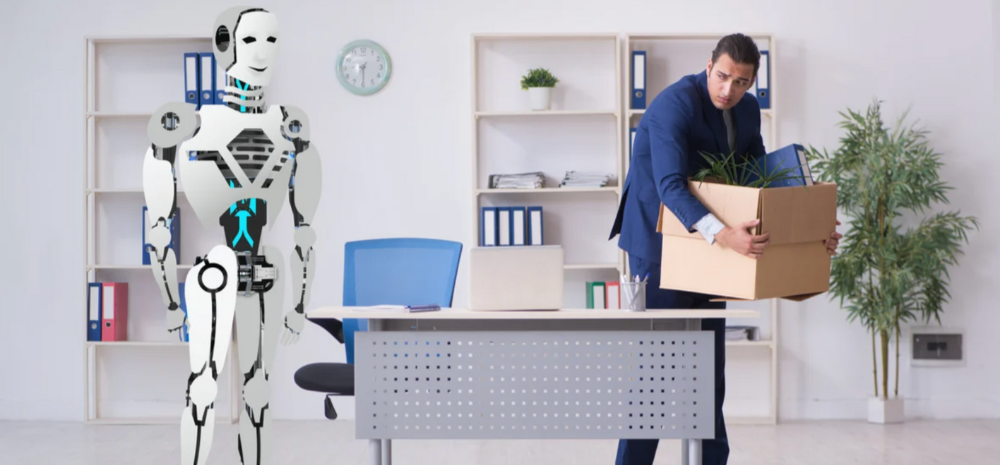In recent years, advancements in artificial intelligence (AI) have sparked discussions about the potential impact on the global workforce.

According to a report by Goldman Sachs economists, up to 300 million full-time jobs worldwide could be automated through AI platforms like ChatGPT.
AI To Take Up 300 Million Full Time Jobs Worldwide
Artificial intelligence (AI) has made remarkable progress in various domains, enabling machines to perform complex tasks that were once exclusively human territory.
From chatbots to automated systems, AI platforms like ChatGPT have demonstrated their capabilities in natural language processing, problem-solving, and data analysis. This has raised concerns about job displacement and the future of employment.
Goldman Sachs economists’ projection of up to 300 million jobs being automated by AI platforms may appear alarming at first glance. However, it’s important to note that this doesn’t imply a sudden mass unemployment crisis.
Automation has historically led to job transformations rather than outright job losses. As repetitive and mundane tasks are automated, it frees up human workers to focus on higher-level, creative, and complex endeavors.
Crucial to Address Potential Challenges Posed By AI
For instance, in the past, the rise of ATMs didn’t eliminate bank teller jobs but shifted their responsibilities toward providing more personalized and value-added services. Similarly, AI automation is likely to create new job roles that cater to the development and maintenance of AI systems, as well as jobs requiring human skills that cannot be replicated by machines, such as empathy, creativity, and critical thinking.
However, it’s crucial to address the potential challenges that AI automation poses. Displaced workers will need access to retraining programs and support to transition into new roles. Policymakers, educators, and businesses should collaborate to ensure that the workforce remains adaptable and equipped with the necessary skills to thrive in an increasingly automated world.
While AI automation has the potential to automate a significant number of jobs globally, the true impact will likely be a transformation rather than wholesale unemployment. As technology evolves, it’s vital to anticipate these changes and proactively prepare the workforce for the jobs of the future, fostering a harmonious relationship between humans and machines.












